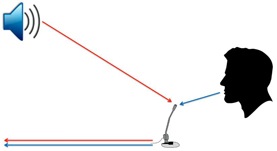Improving audio conferencing


Frequently, when individuals consider sound in gatherings, they consider crinkling treat wrappers and tapping fingers. Diversion in audio technology, in any case, is the most significant component of a conference call. At the point when utilized appropriately, it guarantees that the correct sounds are the focal point of the call, not the diversions.
On conference calls, individuals squander a great amount of time rehashing themselves for members who can’t hear them all around well. Muffled Speech and background noise are the most despicable aspect of beneficial phone calls. By improving sound quality, organizations can ensure that each individual on a conference call is heard unmistakably. This increments both proficiency and profitability.
Both internal and customer confronting gatherings can profit by improved phone call sound quality. While you may want to meet with customers up close and personal, that isn’t constantly workable for worldwide organizations. As often as possible, another customer’s initial introduction of your business is your essence on a conference call.
Let’s see five key tips for improving the audio quality of your conference calls:
1. Know the technology you are using: There is nothing more humiliating than beginning a conference call just to make sure you don’t have any idea how to utilize your audio equipment. This can mean long deferrals, sitting around idly, dropped calls, or a conference call where nobody can hear any other person.


Since conference calls are regular opportunities to establish great first connections, it’s significant that you can show capability and effectiveness with your audio technology. Before you utilize your conference room’s audio equipment, make sure to complete a trial of all functions with a partner. Ensure you realize how to utilize each part of your audio technology accurately before the genuine call.
- Keep the ambient noise level now: For conference calls, pick a room with strong dividers where you can’t hear what’s going on nearby. Maintain a strategic distance from rooms with noisy HVAC frameworks or open windows. Try not to flip through pages on the table. Ensure all mobile phones are silent. In the event that your phone is on vibrate, keep it in your pocket, not on a hard surface where it will make a noisy disturbance. These regular background sounds make it harder for members to hear the speaker.
Decreasing encompassing noise is especially significant for just audio conferencing. Since remote members can’t see you, they can be easily occupied by background noise. This removes their attention from the speaker. A truly professional-sounding conference call has minimal ambient noise so that participants can stay focused on the speaker.
- Make sure you have enough audio equipment: While in an event it’s easier to share thoughts through the same equipment, but while in conference rooms during meetings, it must be ensured that sound quality remains the same for every speaker, but while sharing equipment quality of sound decrease. If your microphone is placed in between two participants then the sound ends up in between sides. The audio equipment used in the conference room’s microphone is not yet designed to gather sound sources from the sides.
Sharing microphones back and forth wastes time. It also collects handling and ambient noise. Additionally, sharing equipment with attached components is not feasible across the conference room.
- Speak directly into the microphone: Participants or remote people engaged in conference rooms think if microphones are placed even at far distance participants inside the room will hear them clearly. But it’s a misconception, microphone usually picks the sound from the direction of their placing.


If you are trying to speak from the sides then you can make sure that the voice heard is not clear to participants. Always position the microphone in front of you. This will help in clear sound.
- Don’t focus much on video that you forget about audio: With regards to A/V innovation, we always focus on the video part but we forget about audio in that video. Sound has dependably been a piece of conference calls, while video, for some, is as yet an energizing new pattern. Individuals much of the time put the majority of their spending limit into video technology and don’t leave enough for top-notch sound.
On the off chance that you have to guarantee one component of your A/V conference call innovation will work dependably, pick the more fundamental part: the sound.
If you are unsatisfied with your audio conferencing system, contact AllwaveAV today. AV industry experts can help remedy the current problem or assess your whole AV system and have our sound engineers offer specific suggestions to fix your audio conferencing challenges.
Interested in more such news about AV trends, tips, and tricks? Subscribe to the new email newsletter.

